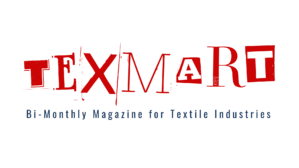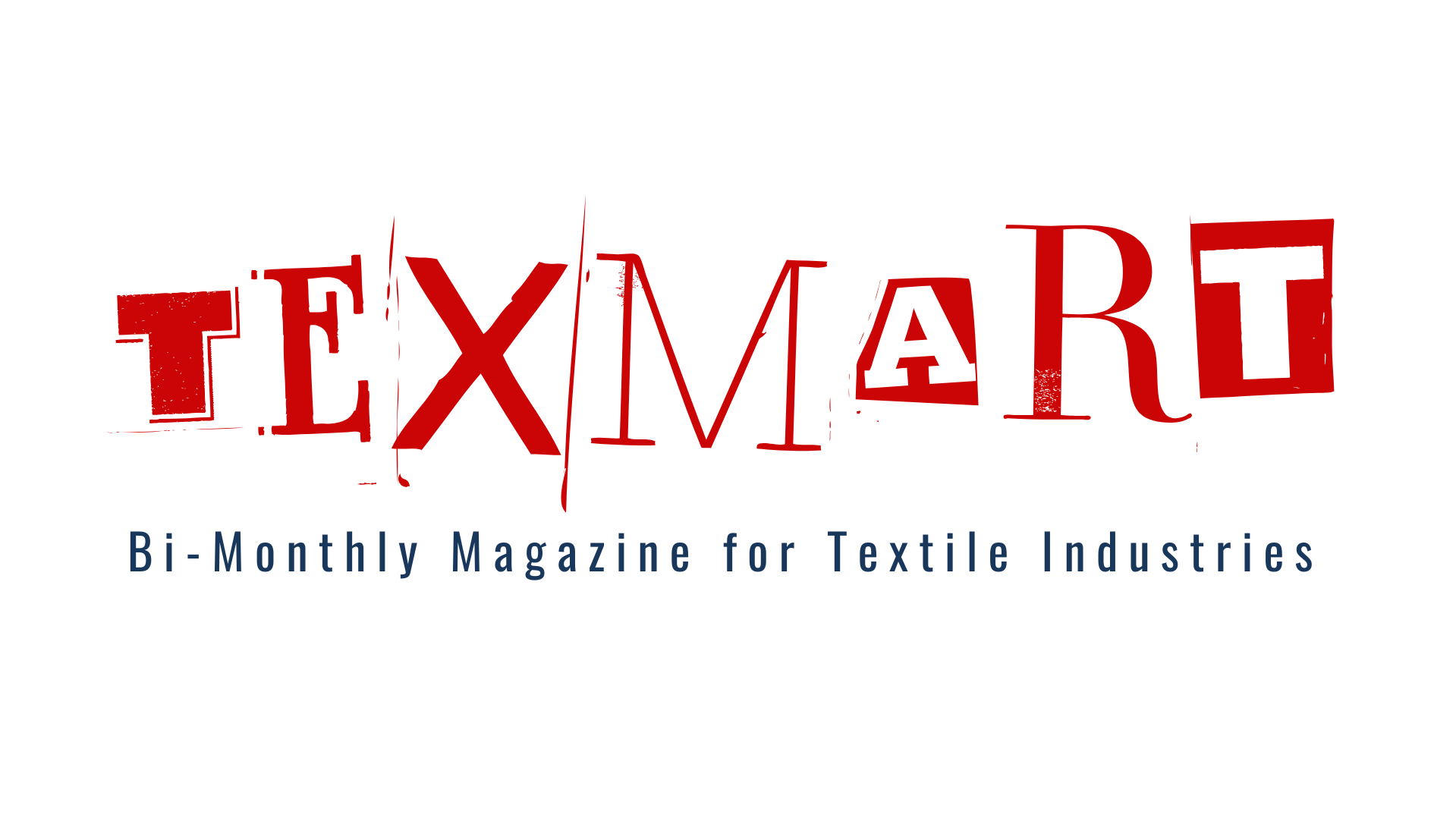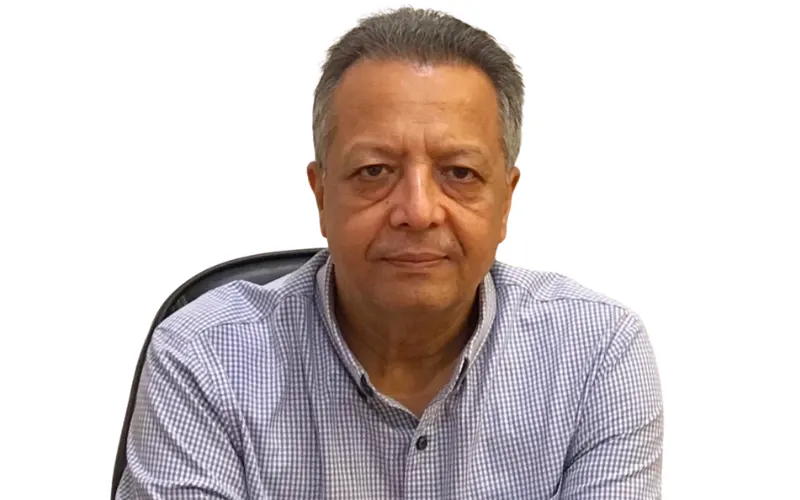Interview with Mr.Ashwani Bindal, Managing Director, Ashton International Private Limited
“Since 1981, Ashton and ABCC have driven import substitution and innovation in textile components, proudly saving foreign exchange and strengthening India’s self-reliance”
TexMart : What led to the creation of Ashton & ABCC and what was the initial vision for the company?
Ashwani Bindal : Ashton was founded in 1981 to manufacture rubbing aprons for woollen & worsted. These were earlier being imported. We therefore introduced import substitution saving our country precious foreign exchanges in those days. ABCC was founded in 1996 to manufacture flexible / metallic card clothing, raising fillets & felting needles.
TM: What values and guiding principles have defined Ashton & ABCC since its founding?
AB : Since its founding, Ashton & ABCC has been guided by quality, innovation, and customer satisfaction.
TM: How has the company adapted its mission or purpose over time in response to customer or market needs?
AB: Over time, Ashton & ABCC has evolved by expanding its product range and adopting advanced technologies to meet changing customer and market demands. While our core mission of delivering high-quality, reliable solutions remains unchanged, we continuously innovate to support efficiency, productivity, and global competitiveness for our clients.
TM: Can you list all the major product categories that Ashton & ABCC offers, and explain what each is used for in the textile and machinery industry?
AB : Ashton offers Synthetic rubber aprons & Condenser tapes for woollen spinning machines, whereas ABCC manufacture flexible/metallic card clothing, raising fillets & felting needles to enhance efficiency, reliability, and quality in textile and machinery operations.
TM: Designing parts like flexible/ metallic card clothing, raising fillets & felting needles, what quality and material challenges do you face, and how do you address them?
AB : Designing these products requires precision, durability, and consistent performance. Challenges include wear and tear, material fatigue, and maintaining exact tolerances. We address them by using high-quality materials, advanced engineering processes, and rigorous quality control and last but not least working skilling – this takes rigourous training & years of hand holding. This ensure quality excellence and long-term reliablity.
TM: How do you stay up to date with the latest materials & manufacturing technologies for your product lines?
AB : We stay current by updating within improved machines, collaborating with global material suppliers, and attending industry expos and technical forums. This allows us to adopt the latest materials and integrate advanced manufacturing technologies to continually improve our product performance and reliability.
TM: Who are your main customers and how do their requirements differ for various product lines?
AB : Our main customers include textile mills, spinning units, non woven and fabric finishing mills. Their requirements differ by product: for example, flexible / metallic card clothing, raising fillet, felting needles demand high precision for fiber processing, etc. We tailor each product line to meet the specific performance and quality needs of each customer segment.
TM: How does Ashton & ABCC identify opportunities for innovation in its existing product categories (e.g. improving wear resistance, reducing maintenance, etc.)?
AB : At Ashton & ABCC, we identify innovation opportunities by analysing customer feedback, monitoring machine performance, and studying industry trends. This helps us enhance wear resistance, reduce maintenance, and improve overall efficiency, ensuring our products continually meet evolving industry needs.
TM: Can you share an example of how customer feedback has led to an improved product?
AB : Customer feedback plays a key role in enhancing our all products. By understanding issues with durability & efficiency, we improved material composition and design tolerances, resulting in longer-lasting, more reliable products that better meet operational demands.
TM: How does Ashton & ABCC compete with both domestic and international suppliers for similar machine parts and accessories?
AB : Ashton & ABCC competes with domestic and international suppliers by offering superior quality, precision-engineered products, timely delivery, and strong customer support. Our focus on innovation, reliability, and tailored solutions ensures we meet client needs more effectively than competitors.
TM: What are the biggest supply chain or raw‐material cost challenges you face, and how do you manage them?
AB : Govt. policies of high import duty on raw materials compared to finished lower duties on imports from China. Recent steel import restrictions & antidumping on TPU has caused delays & higher cost of production, therefore very difficult to compete in international markets or cheaper Chinese finished goods imports in domestic market.
TM: Are there any new technologies or materials (e.g., advanced polymers, composites, coatings) that Ashton & ABCC is exploring to improve performance?
AB : Yes, Ashton & ABCC is continuously exploring advanced polymers & special steel to enhance the durability, wear resistance, and overall performance of our flexible/metallic card clothing, raising fillet & felting needles. This ensures our products meet evolving industry demands and deliver longer service life with minimal maintenance.
TM: How do you ensure consistent quality in small, precise components, especially under varying environmental or operational conditions?
AB : We ensure consistent quality by using high-grade materials, precision manufacturing processes, and strict quality control at every stage. Additionally, our products undergo rigorous testing under different environmental and operational conditions to guarantee reliability and performance.
TM: What is the process for R&D or prototyping when developing a new part or material?
AB : Our R&D and prototyping process begins with analyzing customer needs and market trends, followed by material selection, design, and small-scale prototyping. Each prototype undergoes rigorous testing, and feedback is incorporated before final production, ensuring the new part or material meets performance, durability, and quality standards.
TM: In which product lines does Ashton & ABCC see the most growth potential over the next 3-5 years?
AB : Ashton & ABCC sees the most growth potential in felting needles, metallic card clothing & raising fillets over the next 3–5 years.
TM: How does Ashton & ABCC plan to enter or expand in international markets (export, certifications, etc.)?
AB : ABCC plans to expand internationally by strengthening exports by building partnerships with overseas distributors. This approach ensures our products meet international quality standards and reach new markets efficiently. Participating in product-focused exhibitions in potential countries.



